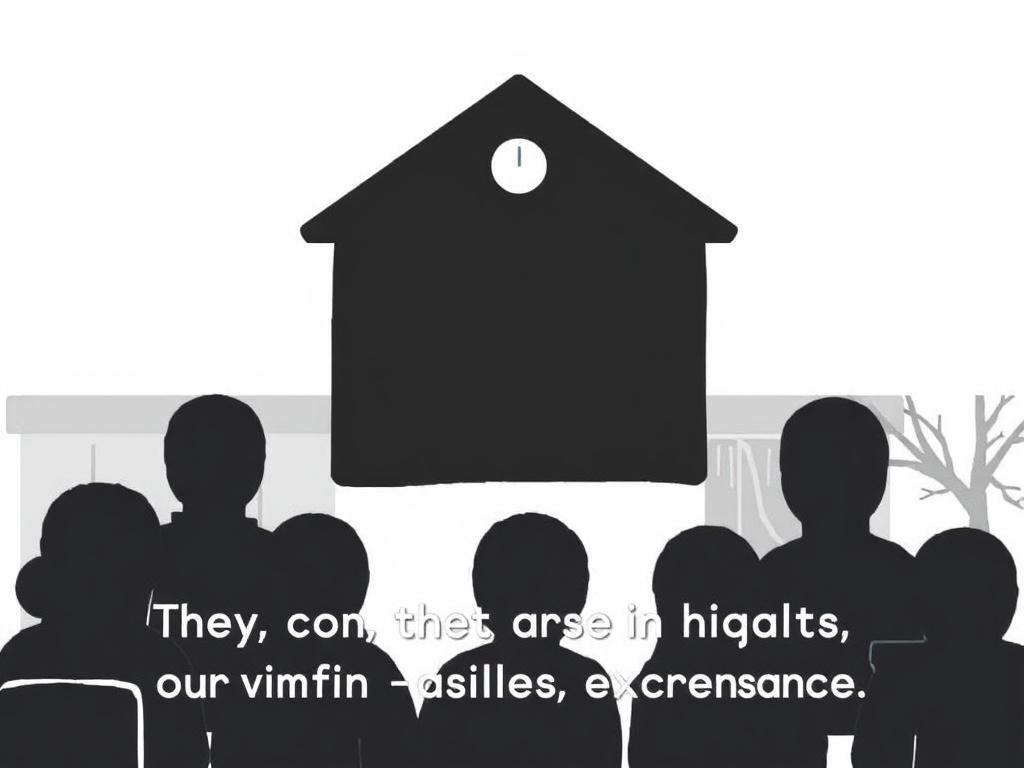The Complex Relationship Between Students and School
School is a place where we spend a significant portion of our childhood and adolescence. For many, it is a place of learning, growth, and friendship. Yet, for some, the experience is something they dread, and they grow to hate school. The question “Why do some people hate school?” might seem simple at first, but the answer is anything but straightforward. People’s feelings toward school are shaped by a variety of factors—emotional, social, academic, and environmental. Understanding these reasons can help educators, parents, and students themselves navigate the challenging landscape of education in a healthier, more constructive way.
Hating school doesn’t mean disliking education as a whole. Often, it’s the structure, the environment, or the expectations that trigger negative feelings. The reasons some people hate school range from struggles with learning, social difficulties, to a lack of engagement or feeling misunderstood by teachers and peers. By exploring this issue in depth, we’ll uncover the many challenges that often stay beneath the surface in classrooms and hallways.
Academic Pressure and Learning Challenges
One of the most common reasons some people hate school is the pressure to perform academically. Tests, deadlines, grades, and assignments can create a stressful atmosphere that makes school feel like a constant uphill battle. For some students, this pressure leads to anxiety and burnout, making them associate school with negative emotions.
Another major contributing factor is the struggle to keep up with the curriculum. Students who have learning differences, such as dyslexia, ADHD, or other cognitive challenges, often feel frustrated and isolated. When the teaching methods don’t match their needs, they can fall behind and face constant criticism or misunderstanding. This gap between a student’s potential and their performance can make school feel like an unfair and punishing place.
How Academic Pressure Impacts Students
- Increased stress and anxiety
- Loss of motivation and interest in learning
- Feelings of inadequacy and low self-esteem
- Higher risk of dropping out or absenteeism
The consequences of academic pressure extend beyond school. Students who hate school often carry their negative experiences into adulthood, shaping their relationship with learning and work.
Social Dynamics and Bullying
For many students, school is a social environment as much as an educational one. Making friends, fitting in, and navigating social hierarchies can be a major source of stress. Sadly, bullying remains a persistent issue in many schools worldwide, and it’s one of the strongest reasons some people hate school.
Social exclusion, name-calling, physical intimidation, and cyberbullying harm students’ self-worth and make attending school feel unsafe. Even subtle forms of social rejection or feeling like an outsider can erode a student’s happiness and willingness to participate.
The Role of Peer Relationships
Positive peer relationships are essential for a healthy school experience. When students have supportive friends, they’re more likely to feel connected and engaged. However, when social dynamics are toxic, school becomes a place to avoid.
| Positive Social Experiences | Negative Social Experiences |
|---|---|
| Supportive friendships | Bullying and harassment |
| Group activities and collaboration | Social exclusion and isolation |
| Encouragement from peers | Peer pressure and negative influences |
| Sense of belonging | Feeling like an outsider |
Schools that foster inclusive environments and anti-bullying programs can create safer spaces where fewer students hate school.
Teaching Styles and Curriculum Engagement
One reason some people hate school is the way subjects are taught or the content covered. Traditional teaching methods often focus on rote memorization, standardized testing, and passive learning. This can be boring and disengaging for many students who crave creativity, interaction, and real-world relevance.
When students don’t see the purpose of what they are learning or find classes dull, their motivation plummets. This disconnect leads to frustration, boredom, and ultimately hatred toward the entire experience. The one-size-fits-all approach rarely meets the diverse needs and interests of learners.
How Engaging Curriculum Can Help
- Incorporating project-based learning
- Using technology and multimedia resources
- Encouraging critical thinking and problem-solving
- Relating lessons to real-life situations
- Adapting teaching to different learning styles
Engaged students are excited to come to school and participate actively in their education—it’s a stark contrast to those who hate it.
Family and Home Environment Influences
The family environment plays a huge role in shaping how a child feels about school. Supportive parents who value education and invest time in their children’s learning can make school a positive experience. Conversely, family stress, lack of encouragement, or negative attitudes about school can predispose children to dislike it.
For some students, challenging home environments with financial difficulties, instability, or lack of resources make it hard to focus on education. They might hate school because it reminds them of problems at home or because they feel pressure to help their families instead of studying.
Family Factors That Influence School Attitudes
| Positive Family Influences | Negative Family Influences |
|---|---|
| Parental involvement in education | Neglect or lack of interest |
| Values placed on learning | Parents’ negative experiences with school |
| Stable home environment | Conflict or high stress at home |
| Encouragement and emotional support | Family financial hardships |
Understanding these family dynamics reveals why some children bring their frustration or resentment about school into the classroom.
The Impact of Mental Health on School Experience

Mental health is a crucial factor often overlooked when we ask why some people hate school. Conditions like depression, anxiety, trauma, and other psychological struggles can make school overwhelming and intimidating. Stigma around mental health issues sometimes prevents students from seeking help, leading to further isolation and distress.
Moreover, the pressures of school combined with mental health challenges can exacerbate feelings of failure, loneliness, and hopelessness. This creates a vicious cycle where students withdraw, avoid school, or develop a strong aversion to it.
Common Mental Health Challenges Related to School
- Generalized anxiety and test anxiety
- Depressive symptoms affecting motivation
- Attention and focus difficulties
- Social anxiety and fear of peer judgment
- Trauma-related responses impacting behavior
Recognizing and addressing mental health is essential to reducing the number of students who hate school. Schools with counselors, support programs, and open conversations about mental wellness help create a more compassionate atmosphere.
School Environment and Physical Comfort
Another often underrated reason that some people hate school relates to the physical environment itself. Crowded classrooms, uncomfortable furniture, inadequate heating or cooling, noise, and lack of access to resources can contribute to a student’s discomfort. Long hours sitting still, strict schedules, and early start times can also be physically and mentally draining.
When schools fail to provide safe, welcoming, and well-equipped spaces, it’s no surprise students develop negative attitudes toward attending.
Features of a Positive School Environment
| Negative Environmental Factors | Positive Environmental Features |
|---|---|
| Overcrowded, noisy classrooms | Spacious, quiet learning areas |
| Uncomfortable seating and poor lighting | Ergonomic furniture and natural light |
| Insufficient recreational or break spaces | Accessible playgrounds and relaxation zones |
| Rigid schedules with little movement | Balanced schedules with physical activities |
Investing in the physical design and atmosphere of a school may seem minor compared to academics, but its impact on student well-being can be profound.
Systemic Issues and Cultural Factors

Sometimes the reasons why some people hate school are rooted in larger systemic issues or cultural mismatches. Education systems vary widely across regions and countries, and certain policies or structures might alienate particular groups of students.
For example, some schools emphasize competition and ranking over collaboration and personal growth. Others may fail to recognize cultural diversity or accommodate bilingual students, making minority students feel marginalized or invisible. Strict disciplinary policies and zero-tolerance rules can alienate students as well.
Examples of Systemic Barriers
- Rigid tracking or streaming systems limiting opportunities
- Lack of culturally relevant curriculum content
- Insufficient support for students with disabilities
- Overemphasis on standardized testing
- Inflexible school policies that neglect mental health and diversity
Addressing systemic flaws is difficult but essential for creating educational environments in which everyone can thrive and fewer people hate school.
Conclusion
Understanding why some people hate school requires us to look beyond surface-level judgments and appreciate the complex web of academic, social, emotional, environmental, and systemic factors at play. Pressure and learning challenges, difficulty with peer relationships, uninspiring teaching styles, family circumstances, mental health struggles, and the physical school environment all contribute to how students experience education. On a larger scale, systemic issues and cultural insensitivity can alienate students and feed dissatisfaction. Exploring these different dimensions reveals that hating school is not simply a matter of laziness or rebellion but often a natural response to unmet needs and difficult circumstances. To change this narrative, schools, families, and communities must work together to create supportive, engaging, and inclusive environments that honor every learner’s unique journey. In doing so, we can help more students find joy and meaning in their education instead of resentment and hate.




















